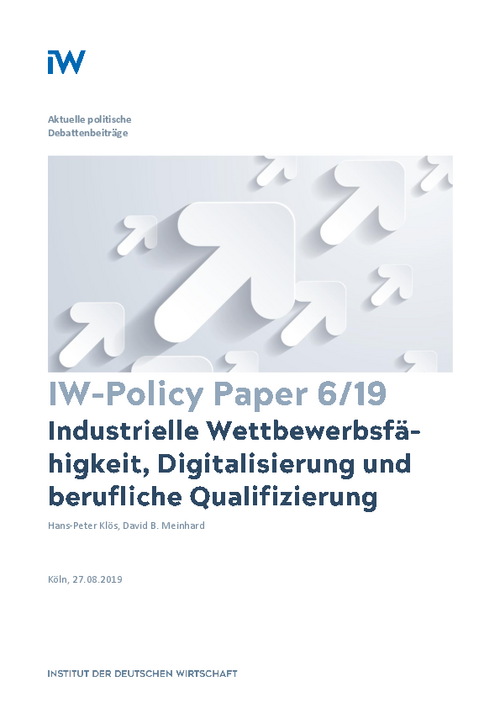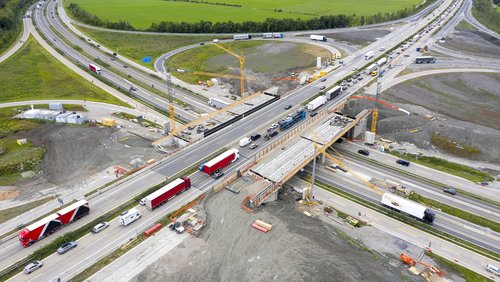The digital transformation in Germany's economy and society is in full swing. Not all of the indicators of Germany's technological performance show a pioneering role in digitization. The technological trends will therefore not remain without effects on the business models of companies operating in Germany.

world of employment: Industrial competitiveness, digitisation and vocational training
IW-Policy Paper

The digital transformation in Germany's economy and society is in full swing. Not all of the indicators of Germany's technological performance show a pioneering role in digitization. The technological trends will therefore not remain without effects on the business models of companies operating in Germany.
This transformation in the world of work is closely linked to changes in work organisation, employment and skill formation. In this context, vocational qualification is particularly called for, both in training and in continuing education, because the relationship to the world of work is naturally very decisively determined by the topicality, availability and accuracy of fit of the existing qualifications.
The following measures, amongst others, are recommended in order to make vocational education and training fit for the future in the course of digitisation: An extension of the training programme to include the topics "digitisation of work, data protection and information security" is indispensable. A foresight on qualification changes and the monitoring of existing competences can support this and provide orientation. Vocational schools must be massively strengthened. Vocational training personnel must be broadly qualified for new digital tasks. When teaching vocational education and training, future skilled workers should be prepared in particular for dealing with complexity and insecurity as well as for higher demands in the area of soft skills. New forms of learning location cooperation between companies and actors in vocational education and training can contribute to the dissemination of new (learning) technologies. Vocational schools, training centres, inter-company training centres, but also research institutions and universities can become more cooperation partners for companies. In particular for SMEs, further assistance should be provided for qualification in digital change.

Hans-Peter Klös / David B. Meinhard: Industrielle Wettbewerbsfähigkeit, Digitalisierung und berufliche Qualifizierung
IW-Policy Paper

More on the topic

Challenges for the debt brake
In 2019, Bardt et al. (2019) initially presented a comprehensive estimate of the unmet public investment needs in Germany not covered in household planning at the time, totaling around €460 billion over ten years.
IW
Corporate Insolvencies on the Increase
After a prolonged decline, the number of corporate insolvencies has begun to rise again. The slight increase in 2022 could be interpreted as a step towards normalisation after the sharp drop experienced during the 2020/21 Covid19 pandemic.
IW